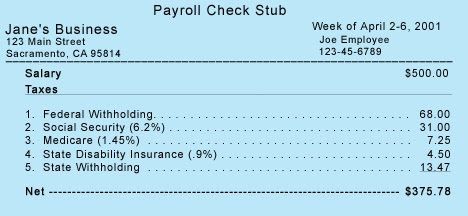San Mateo, CA: Use care when you fill out your federal withholding certificate (Form W-4) for your employer.
The W-4 is used by employers in withholding the correct amount of federal tax from your payroll wage income. The W-4 went through a complete revision in 2020 and remains a rich source of confusion amount taxpayers in exactly how to accurately fill out the form .
Here is what not to do:
DO NOT STATE ON THE W-4 THAT YOUR ARE EXEMPT FROM FEDERAL TAX UNLESS YOU ARE REALLY EXEMPT FROM FEDERAL TAX
This seems simple enough, but some taxpayers are slow-learners
A hard lesson was learned by a crane mechanic in a New Jersey when he decided to go EXEMPT on his W-4 with his his employer (thus having no federal taxes withheld) from 2014-2018. The taxpayer was a high-income earner because in those exempt years, his wage income was right around $1.5M. This resulted in a tax loss of around $375,000 according to the IRS.
To add to the madness, this taxpayer also decided not to file federal tax returns for those years either---I mean, why would you, right?
After a federal jury convicted this taxpayer of tax evasion and failing to file personal income tax returns, he faces a maximum of 5 years for tax evasion and one year for each count of willful failure to file a tax return. There are also sanctions of restitution, civil penalties, a period of supervised release when he exits federal prison.
What was a key piece of evidence used against him at trial? The taxpayer's signed and dated W-4 form from his employer showing that he was exempt from federal taxes. This was clear and knowing fraud.
While this is case may be an extreme example, it does bear a clear warning: Do not commit fraud on your W-4 by claiming your are exempt. Do not commit fraud on your W-4 by claiming inaccurate, unsupportable, and inflated deduction adjustments to lower the amount of federal taxes that are withheld by your employer.
If you are not sure about your W-4, the IRS publishes a tax withholding estimator to help taxpayers complete the withholding certificate.
Kevin W. Rego, Esq.
Law Office of Kevin Rego
650.933.5222
Disclaimer: The information provided is intended to provide a general overview of the topic presented. It is not intended to be a legal interpretation of your individual tax or legal situation. If there is a conflict between the information provided and any legal authority implementing or interpreting the topic, the legal authority shall prevail. Always seek legal advice from a licensed attorney. This article does not in anyway establish an attorney-client relationship. That relationship can only be accomplished with both parties signing a mutual, written agreement.

